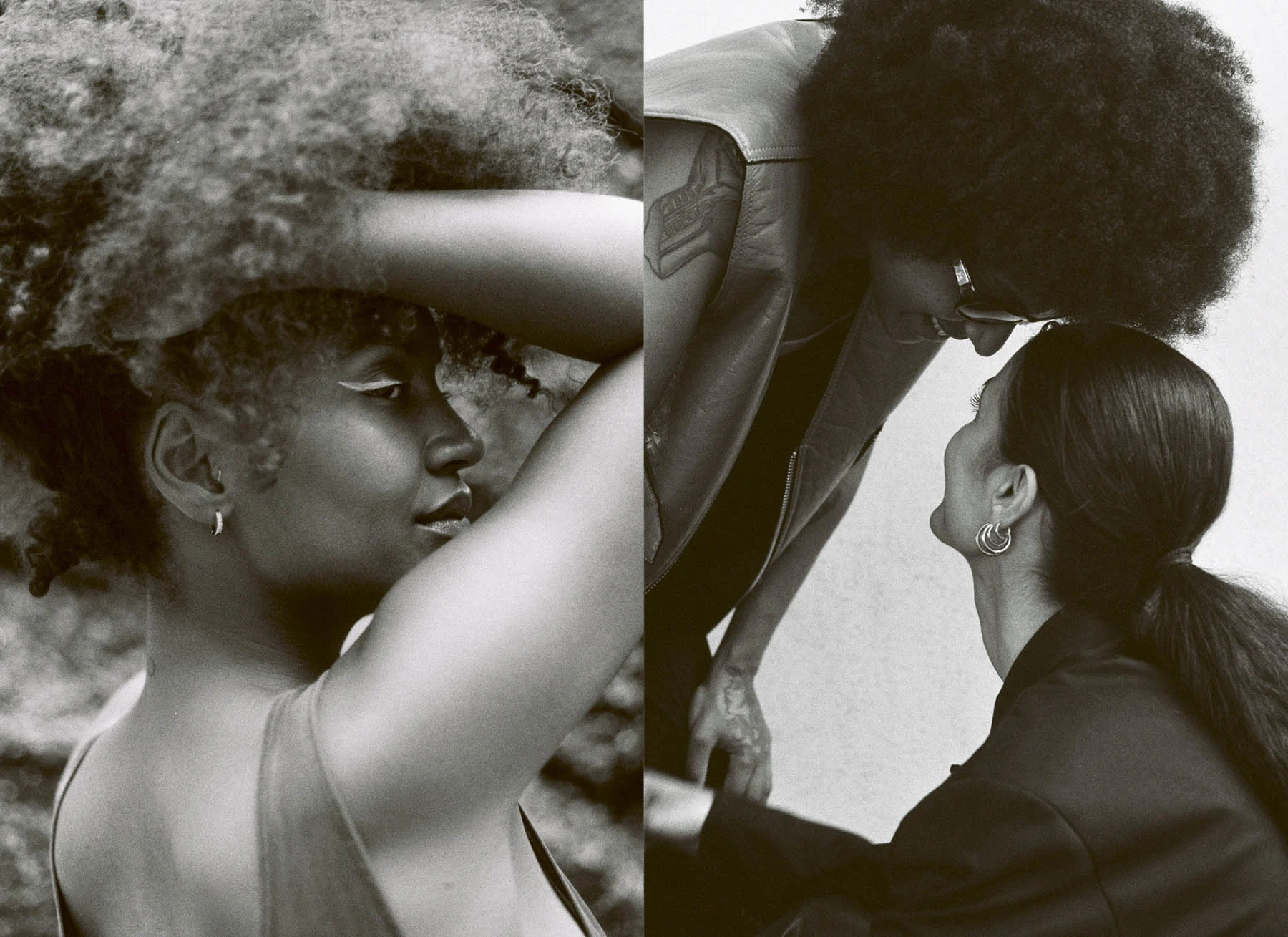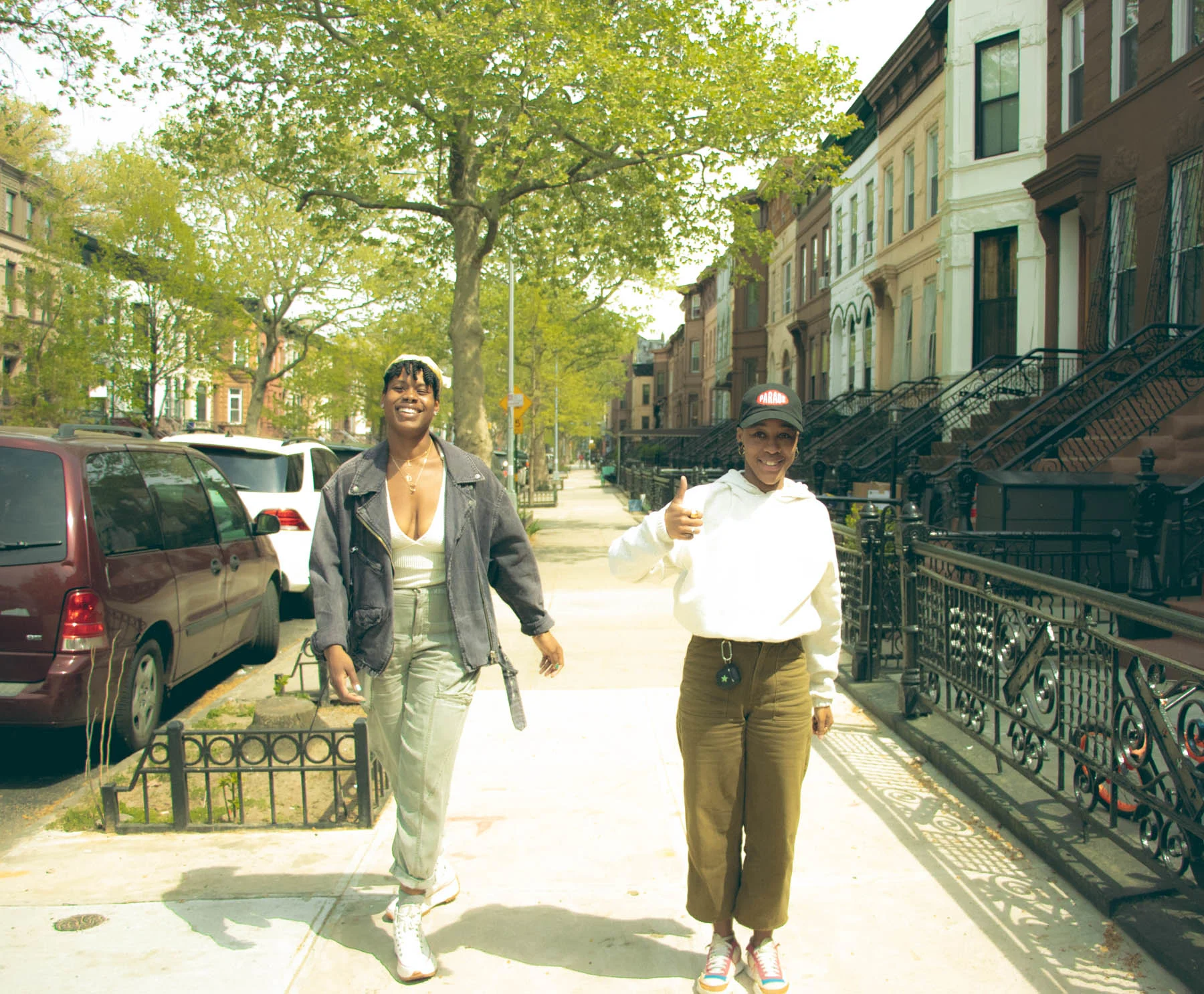

Money and creativity are not easy bedfellows, but most artists and creatives will be familiar with applying for grants to aid them in making their magic. The important thing is always just the art, right? But sometimes making that art can cost so much that it puts the actual creation of said art in jeopardy.
Here writer Alix-Rose Cowie speaks to Jenne Meerman of the Supporting Act, plus a handful of people it’s helped over the years, about the impact this funding has had on creativity and community.
Sometimes the most impactful way to make the world a better place is to find out who’s already making a difference, and just help them do it. In 2022, The Supporting Act Foundation, established by WeTransfer, awarded its inaugural grants and bursaries to art students, artist-led initiatives and grassroots arts organizations from, or working with, marginalized communities. “We're called The Supporting Act because we're here to support and to enable others who are already doing amazing work,” says foundation director Jenne Meerman. Having received their funding, the 26 recipients based across Europe are real examples of what grants make possible in arts spaces.
The Supporting Act Foundation has three different programs: Creative Bursaries for emerging artists, Impact Grants for arts organizations, and Community Grants for collectives, networks or projects. The decision to focus beyond individual artists means the funds can have a wider impact. “It has a big ripple effect,” Meerman says. “These 16 organizations then support their communities of hundreds or maybe thousands of individuals. So we're able to reach people that we might not be able to reach otherwise.”

The selected initiatives are all in their first few years, and don’t have a long track record, which can make it difficult to secure traditional funding. The grants are an acknowledgement of their efforts, and a vote of confidence in their mission. It also adds legitimacy to secure future funding.
The Supporting Act grants seemed to come at just the right time. When Edinburgh collective Spit It Out announced that they’d received a Community Grant, they described it as some steam to keep going. For many, the funding “gives them a moment of breathing space,” Meerman says. It means they can plan ahead and make long-awaited projects happen; expand their reach so more people can benefit from their work; and grow their teams by creating jobs, commissioning freelancers or paying volunteers. There’s no lack of energy or ideas, determination or dedication—just money. But for now, they can focus on the important work: making art, making community, and making a better world.
Beirut Summer School for Theatre & Performance

After the 2020 Beirut explosion, Alaa Minawi was part of a collective of almost 100 artists in theater who banded together to raise money for other artists who had been affected. They ran surveys to find out who was in need of what help, and through this process, discovered that many theater students at the public universities couldn’t afford transport to class due to the country’s economic crisis. Struggling to get to rehearsals, they requested their performance thesis become a written exam.
Minawi realized that the students who still wanted to pursue theater against such odds must have been really passionate about it. And so he was inspired to start the Beirut Summer School for Theater & Performance as a way to share all of the knowledge and experience he and his peers had from working in the industry for over a decade. All of the workshops would be free.

Minawi asked established artists to volunteer as mentors, and asked venues to donate space. At the end of the first program, everyone agreed to do it all again for a second year. But Minawi realized he’d need funding to sustain and develop it further.
Since receiving the grant, Beirut Summer School has been able to pay everyone involved for the first time. “For me, it's like payback—although they never asked for it—for all those who worked with us for the first two years for free. This is the day where we say, ‘Okay, thank you for trusting us.’”
This year, Beirut Summer School is offering 226 hours of programming, and has invited participants from Tunisia and Jordan. Funding has also made it possible to start a mentorship program, where two selected participants are mentored over a number of months, culminating in their first performances in a theater in Beirut.
“Since we got the funding for the school this year, we can ask for funding from other resources by saying, ‘Listen, there are people who believed in us, we got our funding, this is what we've done, and now we have bigger plans,’” Minawi says. This year, they had 80 applications for 12 spots, proving that there’s room for growth. “When people get accepted you see how excited they are for it. That means that we're doing something good.”

DADDY Magazine

In 2016, Kemi Fatoba founded DADDY in Berlin as an online platform for emerging voices in German media, many of whom had never been published. In 2020, the self-funded project expanded to include DADDY magazine, a print publication centering Black perspectives on themes like togetherness, dreams and joy. Fatoba lugged the first issues to the post office in big IKEA bags, and sent each one off with a handwritten thank-you note.
With the magazine came her first big expenses. “It's really important for me to be able to pay everyone we work with,” Fatoba says, “because we specifically want to empower the BIPOC community, the LGBTQIA+ community, and everyone who's underrepresented in traditional media.”
Due to a stock image issue, the most recent issue of DADDY had to be recalled and reprinted at huge cost. “And then the grant happened,” Fatoba says. “It really meant a lot, because it happened at a time when we wondered how we’d carry on.”


The Joy Issue was to be published alongside a short film about Black joy—a dream two years in the making which can now be realized, thanks to the grant. “We want it to be a counternarrative,” Fatoba says. “We are fed with so many images of pain and suffering; you hear a lot about Black oppression and all the things that need to change. But at the same time, I think it's also really important to have a visual representation of everything that's beautiful about the Black experience. I feel like there's not enough happening in that respect. Personally, I want to be able to see a film with a Black protagonist and leave the cinema feeling uplifted, rather than in tears.”
Fatoba is enjoying a break from the financial pressure that steals from creativity. A special artist edition of the magazine is planned for later this year, and DADDY is commissioning Berlin-based artists from underrepresented communities to create artwork for the cover. “Magazines rarely get grants,” Fatoba says. “I think it's a shame when publications that try to make a difference can't survive because of lack of funding.”
ESEA Music

The first thing Tiger Hagino Reid and Hiroki Shirasuka did when co-founding ESEA Music was write a list of the East and Southeast Asian individuals they knew in the UK music industry. They could only come up with 10. “The lack of representation for individuals who looked like us was a driving force behind ESEA Music,” Hagino Reid says. “ESEA Music was our response to the rise in racism against those racialized as East and Southeast Asian in the UK during the COVID-19 pandemic, and the broader Stop Asian Hate movement.”
ESEA Music is now a 300-strong community of UK artists and music professionals who run member meet-ups, a mentorship scheme called Sesame, and showcases of ESEA artists on platforms like Spotify. “What inspires me to continue this work is to imagine the next generation of creative, powerful and successful ESEA artists coming through,” Hagino Reid says.


The Supporting Act grant has secured coaching for the Sesame program, funded a landmark research paper, and allowed them to run a series of music writing and recording camps with Lucy Tun and Kityiu Grace at Urchin Studios in London.
“The main aim of this camp reflects the ethos of ESEA music: collaboration and community,” Tun says. In each workshop, musicians at various stages of their careers worked together to create new music, which is set to be released. “By doing so, we hope to reinvest back into our community, supporting our growth and development,” Kityiu Grace says.
Tun says: “I feel so grateful to witness all this amazing music and personal connections being made between the members. The response was overwhelmingly positive.”

Spit It Out

Spit It Out was founded by Léa Luiz De Oliveira and Bee Asha Singh to open conversations about topics like consent and mental health. The organization has cultivated an ever-growing community in Scotland that meets up for free workshops and gatherings, and it hosts an annual multi-day, two-city festival with a packed program of screenings, exhibitions, poetry and music. Then there’s Spit It Out’s print magazine, Phlegm, and a five-episode podcast.
These avenues all stemmed from Luiz De Oliveira and Singh addressing their own trauma, figuring out what worked for them, and then sharing their insights with others. And when Luiz De Oliveira meets new volunteers or community members, she works with them to develop new community offerings based on their passions.
“It comes mostly from lived experiences,” Luiz De Oliveira says. “For Bee and I, we used what helped us to get better after a mental health crisis—Bee wanted to start writing workshops or community movements where people can come together and talk to each other. And then one person from the community would say, ‘Well, what helps me is to go into nature and to do some physical activity.’ And so we’d find the farm to make this happen.”


Spit It Out is also about connecting people with similar lived experiences. “Everything feels a little bit lighter when you realize that you're not the only one holding something,” Singh says. “If you find someone who shares… a passion or a healing process with you, you feel a little bit more open.”
With everything they and their team have facilitated, Luiz De Oliveira and Singh welcomed the time to take a breath when their grant came through. “There were a lot of times where we had no money and we thought we couldn’t continue doing this,” Luiz De Oliveira says. “The grant’s had a really beautiful and incredible impact on our mental health because finally we didn't have to worry so much. Now we're in a position where we pay ourselves, but we can also create jobs for others.”
With the grant, Singh is feeling more energized. “I'm up for pushing for these spaces to still be here because they're so rare to find for people like us.”





